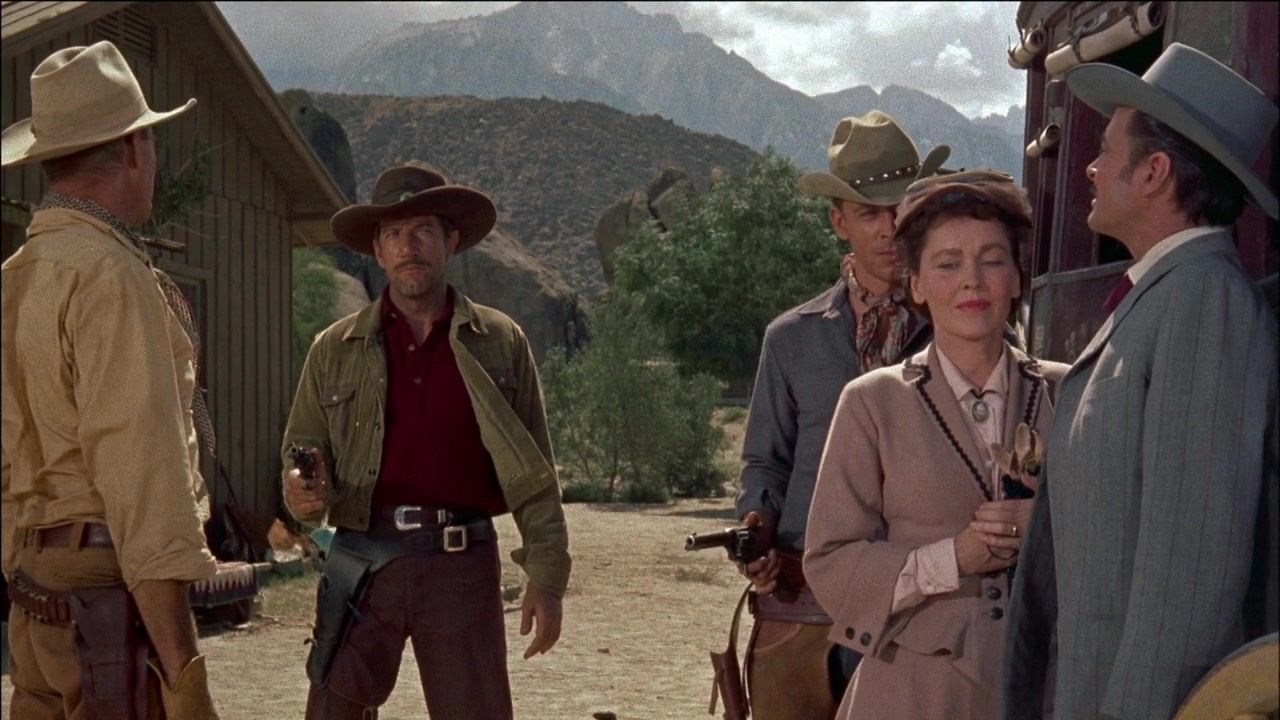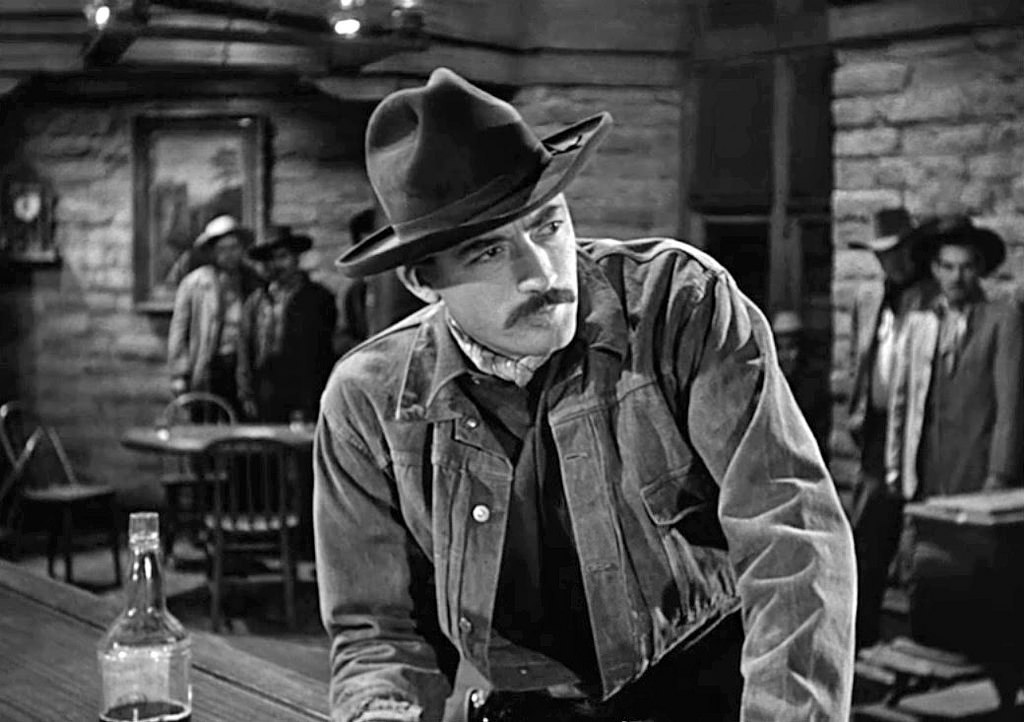6. Chino (1973)

A soulful and introspective western, Dino De Laurentiis’ “Chino” (sometimes called “The Valdez Horses”) tackles some large subjects (like prejudice) tastefully, and without being heavy-handed. While there is certainly gunplay involved, there is surprisingly little, and it’s downplayed (which is again unusual for a western).
Charles Bronson artfully takes the lead as a laconic mixed-ethnicity horse-trainer who takes in a young orphan boy (Vincent Van Patten) and teaches him about horses. The relationship is played very well, and Van Patten hands in an outstanding performance as the younger of the duo. Child actors can sometimes be hit-or-miss, but in this case it’s all hit.
The true relationship that carries the movie through, though, is the forbidden romance between Bronson’s Chino and Jill Ireland’s Catherine. Though they banter and frequently even baffle one another, the love for one another can be seen even when they’re at odds (it doesn’t hurt that Bronson and Ireland were real-life husband and wife when the movie was filmed).
The end conflict comes when Catherine’s brother, who can’t bear to see his sister married to a person of mixed blood, begins to make ultimatums. The end is bittersweet and makes a good case for wild things remaining untamed.
7. The Tall T (1957)

“The Tall T” is as close to a pure, simple western as they come, and it’s not trying to be anything else. A survival film with a simple but compelling and tense plot, it clearly delineates hero from villain by their actions. Randolph Scott as Brennan once again walks tall on this list; he begins by losing his horse in a foolhardy bet and promises a young boy to return his way with some candy sticks. Soon he’s picked up walking in the open desert by a stagecoach driven by a friend of his. In the coach he meets a young couple on their honeymoon. But things take a turn for the worse soon enough, as bandits kidnap everyone on the stage and kill the driver, forcing the captives into a life and death game of cat-and-mouse.
Indeed, the film was almost titled “The Captives” but just before it premiered the name was switched to “The Tall T,” which is the name of the Tenvoorde ranch shown in the early scenes. One can argue that “the Captives” makes more sense given the content of the movie, but “The Tall T’ is the better name.
The acting is excellent, and all the major players (Scott, Richard Boone as Frank Usher, and Maureen O’Sullivan as Doretta Mims) do well, helped along by a tightly written script. There’s hardly a dull line in the film, everything seems to advance the plot somehow. The villainy of the bandits (led by Boone, and often carried out by his cronies, Chink and Billy Jack, though Chink himself is perhaps more despicable than Usher) seems more real – more tangible – than in so many other westerns.
The situation continues to devolve rapidly, and the outlaws become more desperate. The plot keeps the audience guessing, and even the fate of the villains seems inscrutable until the very end. “The Tall T” is certain to deliver.
8. The Gunfighter (1950)

Gregory Peck is impeccable as aging gunslinger Jimmy Ringo (no relation to Johnny Ringo of O.K. Corral fame, though Wyatt Earp’s name is brought up more than once) trying to go straight. He’s drawn in to gunplay by a young duelist looking to make a name for himself, and when he kills him in self-defense, he ends up hunted by the boy’s relatives. Ringo carries on to the town of Cayenne, where he meets an old friend who is now the sheriff, and reveals he’s come back to see his estranged wife and son. She puts him off most of the morning, during which time, tensions in the town mount, and more would-be killers draw near.
What makes this movie stand alone is, well, Gregory Peck, standing alone. He’s a man set apart by his own reputation, and he’s just exhausted trying to defend it. A lesser actor than Peck wouldn’t have been able to convey it so effortlessly, but naturally his immense talents carry the film. The feeling of isolation is exaggerated by the cinematography and shot set-up; as many shots as possible show Ringo alone, even in places designed to be occupied by others (like saloons).
Ringo finally gets his meeting, proclaiming his desire to leave everything behind, to go where nobody knows his name. But it’s too late. His name is already too big as it is. It seems you can never return home.
9. Man of the West (1958)

Gary Cooper plays Link Jones, a man with a past who has been living under an assumed name. He is drawn into a web of intrigue among his old gang, including Lee J. Cobb as Dock Tobin, an almost unrecognizable young Jack Lord as the thoroughly ruthless and despicable Coaley (Link’s cousin), and John Dehner as Claude, another of Link’s cousins, when they rob a train that had been carrying Link, along with money that had been entrusted to him by the people of his adopted hometown. Link is knocked unconscious and left behind as the train flees the scene, along with Julie London as Billie Ellis. Together they walk to a small, dilapidated ranch, where Link admits he once lived. Inside, the outlaws are lying in wait for them.
Link acts as though he’s returned to rejoin his old gang, but he must play it close to the vest among a gang of cutthroats who don’t quite trust him. He has to find the money they stole from him, or he can never go back to the life he’s built since escaping from the life of a robber. But he must also do everything in his power to stand between Billie and the bloodthirsty criminals. The clash comes when they travel to a town to rob a bank – only to find the town nearly deserted, which leads one of the bandits to kill a woman, setting the scene for a conclusion that is shocking to the core.
10. Support Your Local Sheriff (1969)

The only comedy on this list, “Support Your Local Sheriff” pits the wits of James Garner as drifter Jason McCullough against Walter Brennan and Bruce Dern (together with Gene Evans and Dick Peabody) as a family of out-of-control outlaws making life miserable in a small gold rush town lacking a local lawman (it seems they keep dying).
McCullough is soon enlisted by the town as sheriff and puts his talents as an extraordinarily fast gunfighter to work, scooping up Dern’s Joe Danby and throwing him in what can only barely be called a jail.
Harry Morgan stars as mayor Olly Perkins in a performance that nearly steals the show. It’s easy to see that his comedic talents were wasted on serious roles like “Dragnet.” His perpetually embarrassed daughter, Prudy Perkins (played by the delightful Joan Hackett) steps into the role of romantic lead like she was born to it. All this is rounded out with Jack Elam as the deputy, Jake, who shows he can play the role of comedic sidekick just as well as he can play menacing villains.
The great thing about “Support Your Local Sheriff” is that the jokes almost always land, and there’s something for everyone, from fast and clever “blink-and-you’ll-miss-the-joke” style humor to pure slapstick, and everything in-between. The script is smartly written and smartly acted.
It’s a delight to see Garner and the rest of the cast interact, as McCullough easily outsmarts the machinations of the Danby family (who are trying to break Joe out of jail), spars with Prudy, and holds the town council at bay while he tries unsuccessfully to strike it rich in gold veins known to be in the area. The Danbys finally tire of the game and round up all their relatives for a final explosive showdown.